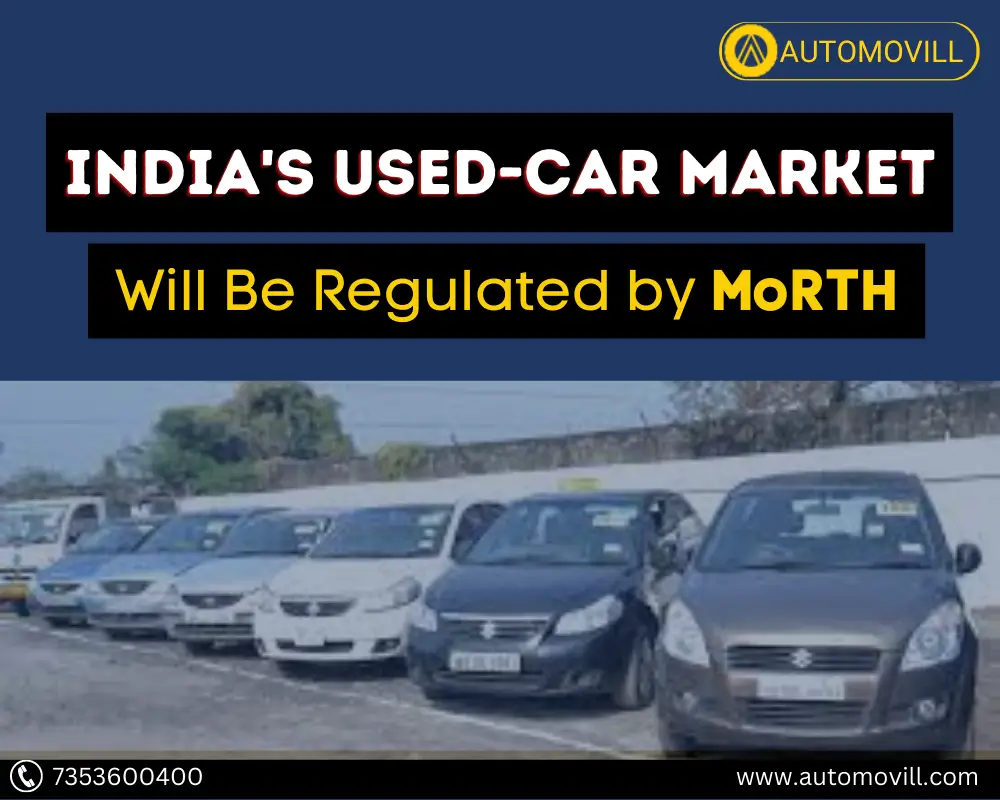
The Ministry of Road Transport and Highways (MoRTH) is the government agency responsible for the development and maintenance of road transport in India. It is responsible for formulating and implementing policies related to road transport and highways in the country.
After a number of problems, including the proliferation of dishonest middlemen who take advantage of legal gaps, the ministry of road transport and highways (MoRTH) has finalized rules to control the used automobile market. Three months prior, MoRTH had released a draught notification for public feedback.
In the current system, disagreements over third-party damage obligations and difficulties identifying defaulters were common throughout the transfer of a vehicle to the subsequent transferee.
According to the proposed regulations, dealers of registered vehicles will now be required to obtain an authorization certification from registering authorities, which will be valid for five years.
Intermediaries will be able to become de facto owners under the new transfer procedure if the aforementioned compliance requirements have been successfully completed.
An authorized dealer of registered vehicles is qualified to submit applications for duplicate registration certificates, NOCs, and transfers of ownership of motor vehicles in regard to the vehicles in his possession.
Additionally, the ministry has mandated the maintenance of an electronic vehicle trip register, which would include information about the trip’s purpose, driver, time, mileage, etc.
In relation to the used-car market in India, MoRTH has implemented several regulations to ensure the safety and quality of used vehicles being sold in the market. For example, MoRTH has introduced the “Vehicle Scrappage Policy” which aims to phase out old and unfit vehicles from the roads to improve air quality and reduce road accidents. The policy also includes provisions for the establishment of vehicle scrapping centers and norms for the scrapping of vehicles.
MoRTH has also introduced the “Voluntary Vehicle Fleet Modernization Program” which aims to encourage the replacement of old vehicles with new, safer, and more fuel-efficient ones. Under this program, owners of vehicles that are more than 15 years old can receive incentives for replacing their vehicles with new ones.
Overall, MoRTH’s regulations aim to ensure the safety and quality of used vehicles being sold in the market and to encourage the use of newer, safer, and more fuel-efficient vehicles on Indian roads.
FAQs
Can we use a car after 20 years in India?
In Delhi, a gasoline-powered vehicle is deemed trash after 15 years, and a diesel-powered vehicle after 10 years. In Maharashtra, a gasoline-powered car and a diesel-powered car are both regarded as scrap after 15 years.
What is the size of the second-hand car market in India?
The size of the used automobile market in India was $23,355.3 million in 2021, and it is anticipated to increase by 17.5 % CAGR between 2021 and 2030 to reach $99,707 million by 2030.
Is it OK to buy a 15-year-old car?
Commercial vehicles will be subject to a monthly fine of 500. In accordance with the new regulations, private automobiles older than 15 years must submit renewal applications every five years. According to government statistics, there are at least 12 million automobiles in India, including those in the NCR, that can be scrapped.
